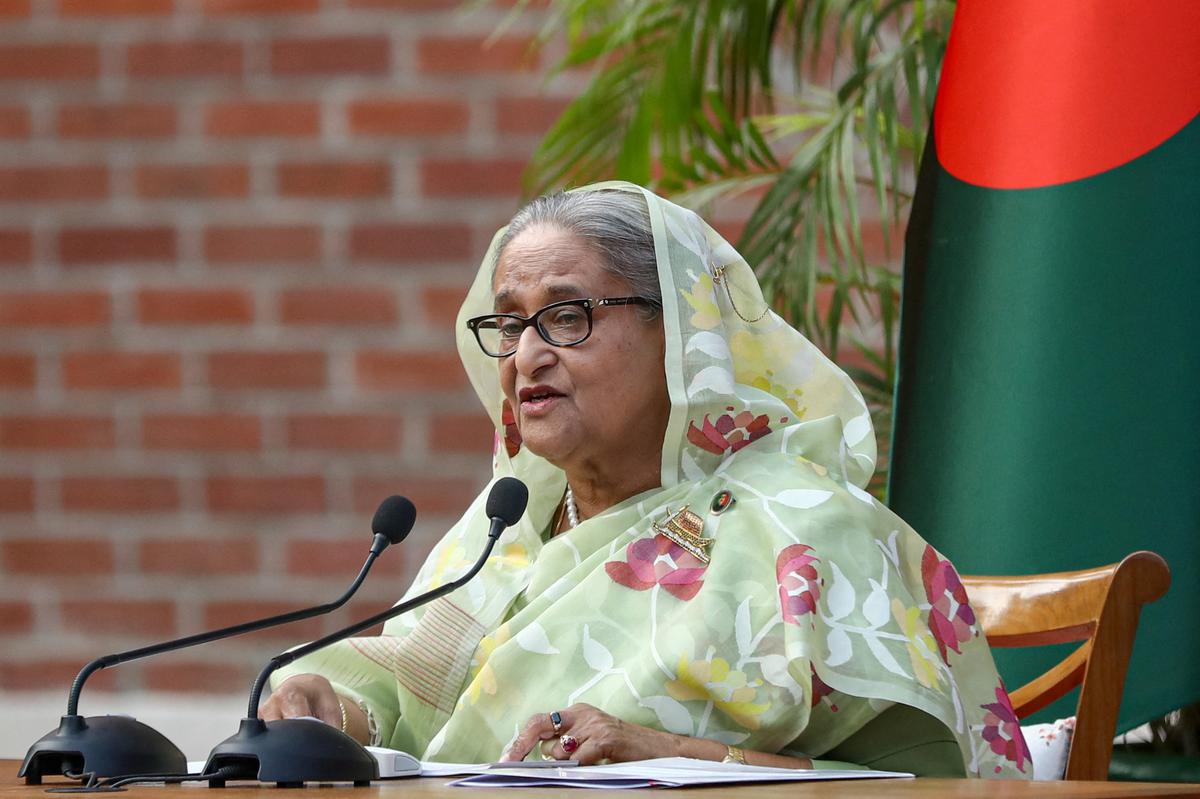US Desperate For Military Base In Bangladesh: Conspiracy to Make a New State Near India
This controversial plan, which involves cooperation with various regional insurgency groups, has raised significant concerns among the affected nations. Bangladeshi Prime Minister Sheikh Hasina revealed these developments, emphasizing the potential destabilization such actions could bring to the region.

The Alleged Conspiracy
Western Nations’ Agenda
According to Prime Minister Sheikh Hasina, Western countries, including the US and Britain, are collaborating with the Kuki-Chin National Front (KNF) and other insurgent groups. Their goal is to create a Christian state similar to East Timor. This proposed state would amalgamate territories from Bangladesh, Myanmar, and possibly India. Although Hasina did not explicitly name India, the implications are evident.
KNF and Regional Insurgency Groups
The KNF, along with the United Liberation Front of Assam (ULFA) and other insurgent groups, is reportedly instrumental in this conspiracy. These groups have a history of seeking autonomy and leveraging regional instability to achieve their aims. The collaboration between these insurgents and Western powers could lead to significant geopolitical shifts in South Asia.
US Interests in Bangladesh
Airbase Proposal
Prime Minister Hasina mentioned that she received an offer from a “white man” to ensure her reelection in exchange for allowing a foreign airbase in Bangladesh. While she refrained from naming the country, it is widely assumed to be the US. Historically, the US has shown interest in establishing a military presence in strategic locations around the globe, and St. Martin’s Island in Bangladesh has been a focal point.
Strategic Importance of St. Martin’s Island
St. Martin’s Island, located in the Bay of Bengal, is a strategic asset. Rumors have circulated about the US’s interest in this location, although US officials, including former Ambassador Mary Ann Peters, have denied such claims. Nonetheless, the island’s proximity to key maritime routes makes it a valuable asset for military and strategic operations.
Historical Context and Current Developments
Past Speculations and Official Denials
In 2003, speculation about the US seeking a military base in Bangladesh was dismissed by US Ambassador Mary Ann Peters. Despite these denials, persistent rumors and strategic analyses suggest ongoing interest. Recent comments from Bangladeshi political leaders indicate that the US might be leveraging its visa policy and other diplomatic tools to influence the region.
Christian Missionary Activities
For years, Christian missionaries and Western NGOs have been active in the border regions of Bangladesh, India, and Myanmar. Their efforts include religious conversion and socio-political influence, potentially laying the groundwork for a new state. Publications by these missionaries have propagated narratives of “Christian persecution” to garner international support.
The Role of Insurgent Groups
KNF and Islamist Militants
Interestingly, the KNF has allied with Jamaat Ul Ansar Fil Hind Al Sharqiya (JAFHS), an Islamist militant group. This alliance appears strategic, aimed at destabilizing the region to facilitate the creation of the proposed Christian state. The KNF’s cooperation with JAFHS highlights the complex interplay of religious and political agendas in the region.
Also Read : Bangladesh PM’s Controversial Statement on ‘BoycottIndia’ Campaign
Insurgency Dynamics
The collaboration between KNF and JAFHS has led to the establishment of militant activities under the guise of agricultural projects. These efforts aim to attract local residents to their cause and promote religious conversions. The strategic use of militant groups to achieve political goals underscores the intricate nature of this conspiracy.
Regional Implications
Security Threats to Bangladesh, India, and Myanmar
The potential creation of a new state poses significant security threats to Bangladesh, India, and Myanmar. Such a development could lead to increased regional instability, with insurgent activities spilling over borders. The collaborative efforts of these three nations are crucial to countering this threat and maintaining regional stability.
International Geopolitical Shifts
The involvement of Western nations in this conspiracy indicates a broader geopolitical strategy. Establishing a Christian state in this region could provide the US and its allies with a strategic foothold, enabling them to exert greater influence in South Asia. This move could also counterbalance the growing influence of China and other regional powers.
Conclusion
The alleged conspiracy to create a new Christian state near India, involving Western nations and regional insurgent groups, represents a significant geopolitical development. The strategic interests of the US and its allies in Bangladesh, coupled with the activities of insurgent groups, pose serious challenges to regional stability. Addressing this threat requires coordinated efforts from Bangladesh, India, and Myanmar to safeguard their national interests and maintain peace in the region.

